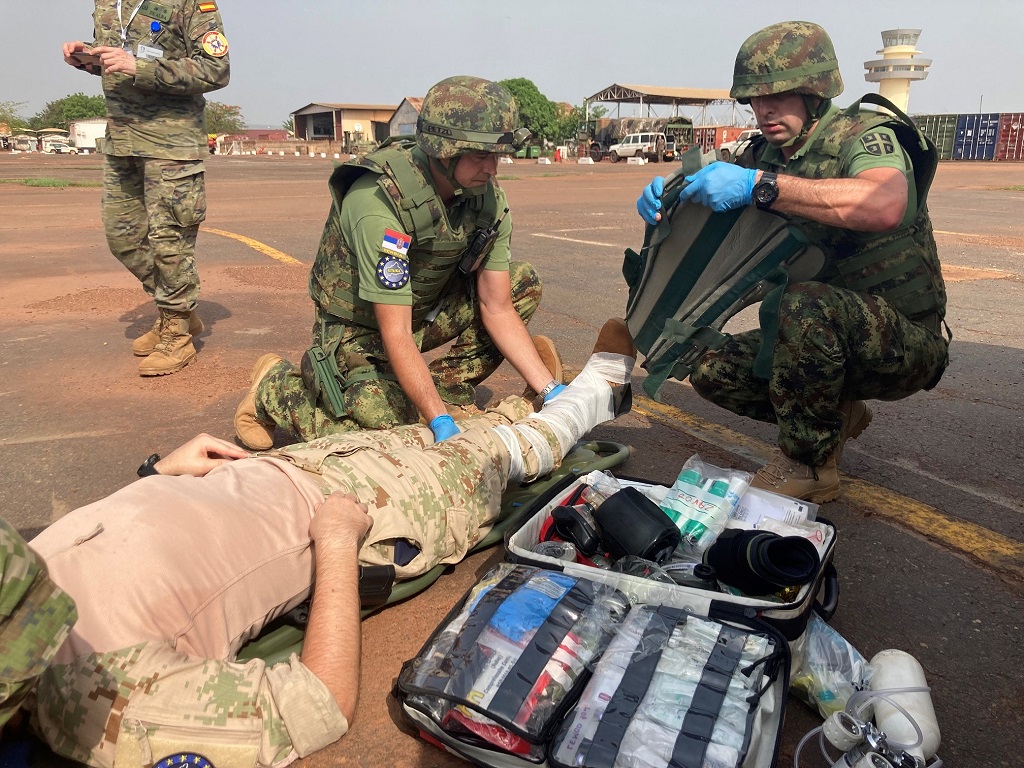
EUTM RCA
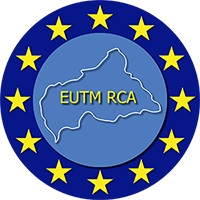
The Central African Republic (RCA) is a country with an area greater than Spain and just over 5 million inhabitants. Because of its geographical location, it has a tropical climate, with temperatures of around 30ºC and considerable rain during half year.
The Central African Republic (RCA) is a former French colony, and achieved independence on 13th August 1960. Since then, political instability has been a recurring question in its recent history.
The current situation has its most recent history in 2013. In March, the president, François Bozizé was overthrown by the uprising of SELEKA rebels, primarily Muslims, in the north and north-eastern areas of the country.
Michel Djotodia, one of the main leaders of SELEKA, assumed power, suspended the constitution and dissolved Parliament with the intention of holding free elections after an 18-month transition period. However, he was unable to control the SELEKA groups dedicated to terrorising the civilian population. In response, old militias, made up of Christians and animists, were activated, to defend themselves against the Seleka outrage and initiate retaliatory actions under the name of anti-Balaka militias.
The deterioration of the situation at the end of 2013 led, on one hand, to the resignation of President Djotodia and the appointment of the interim president Catherine Samba-Panza, and on the other, to deployment of various forces to maintain the peace: MISCA- the International Mission of the African Union to support the RCA, later replaced by MINUSCA; SANGARIS from France and EUFOR-RCA and EUMAM-RCA from the European Union.
Having achieved the objectives of the EUMAM-RCA operation by the middle of 2016, it was replaced by EUTM-RCA.
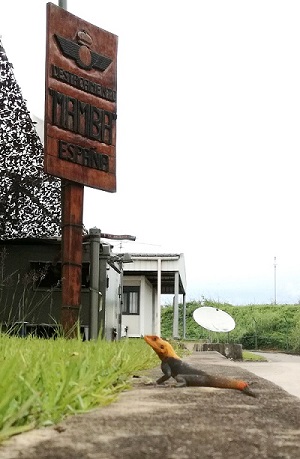
On 14 March 2016, the Council approved the Crisis Management Concept on a possible EU Military Training Mission in the Central African Republic (EUTM RCA), to contribute to the country's defence sector reform. In a letter dated 30 March 2016, the President of the CAR, Faustin-Archange Touadéra invited the Union to deploy an EU CSDP military training mission in the CAR (EUTM RCA). Subsequently, on 19 April 2016 the Council formally decided to establish EUTM RCA with a view to launching it in July 2016.
In close coordination and complementarity with the MINUSCA, EUTM RCA will support the CAR Government in the implementation of the Security Sector Reform (SSR) by assisting the Forces Armées Centrafricaines (FACA). The goal is to support the build-up of a modernised, effective, ethnically balanced and democratically accountable FACA. The Mission shall concentrate its action in the Bangui and Bouar areas.
The new mission follows the EU Military Advisory Mission in the CAR (EUMAM RCA), the mandate of which came to its end on 17 July 2016.
On 30 July 2018, the Council extended the mandate of the EUTM RCA by two years, i.e. until 19 September 2020. The Council also modified the mandate of the mission to enable it to give strategic advice not only to the Ministry of Defense, military staff and the armed forces, but also to the President's cabinet, and to allow it to provide advice on civil-military cooperation, including to the Ministry of the Interior and the Gendarmerie.
The mandate enables the support of the CAR authorities in the preparation and implementation of the upcoming Defence and Security Sector Reform (SSR) by assisting the FACA to manage their situation and to build the capacity and quality needed to meet the goal of a future modernised, effective, ethnically balanced and democratically accountable FACA.
The mandate consists in the support of the CAR authorities in the preparation and implementation of the upcoming SecuritySector Reform by assisting the FACA to manage their situation and to build the capacity and quality needed to meet the goalof a future modernized, effective, ethnically balanced and democratically accountable FACA.
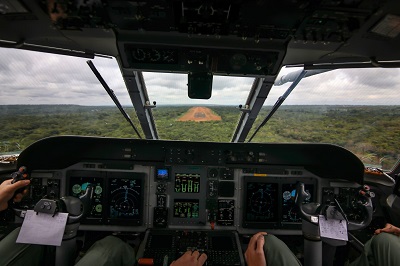
In a letter dated 8 October 2015, the Chef de l'État de la Transition of the Central African Republic (CAR), Mrs Catherine Samba-Panza, invited the European Union to further support the Central African Armed Forces (FACA) through a reinforced operational training structure in full collaboration with the United Nations Multidimensional Integrated Stabilisation Mission in the Central African Republic (MINUSCA).
Operation EUTM RCA is intended to provide continuity to the European Union's mission EUFOR RCA, following its completion in March 2015.
It was launched as a result of the international community's commitment to prevent genocide of African civilians and now, following stabilisation, it is necessary to strengthen security and teach its armed forces to make their own decisions.
The new operation must serve as a link with the forces deployed on the ground, both those of the United Nations' MINUSCA (United Nations Multidimensional Integrated Stabilisation Mission in the Central African Republic) and the French forces of operation 'Sangaris'.
In conjunction with MINUSCA, provides advice to the Presidential teams overseeing national security policy and SSR.
To this end, the EUTM RCA contributes to the restructuring of the Defense sector in three domains: strategic advice, operational training and education. Since July 2016 the EUTM RCA has advised, educated and trained more than 3,400 soldiers, men and women of FACA.
1. Strategic Advice Pillar (SAP): The mission provided strategic advice to the political and military authorities, both in the field of the deployment planning and in the development of major documents: National Defense Plan (2017), military programming law (2019-2023), recruitments plan (2018). In addition, 69 texts (decrees, laws or ministerial orders) were passed, and 45 steering committees (CODIR) approved texts pending of further political decisions.
It also analysed some projects to support the deployment of FACA:
- Assembly of military bridges in SAPEKE and ZINGA,
- Infrastructure and equipment projects financed by the European Union.
2. Operational Training Pillar (OTP): EUTM RCA has trained six battalions in total: five (5) deployable infantry battalions (the 1st, 2nd, 3rd, 4th and 7th Bataillon d’Infanterie Territorial - BIT), and one (1) Amphibious Battalion.
3. Education Pillar (EDP): More than 100 specialization courses were organized with a total of 3598 students, including one NCO career course with 70 graduated; 10 FETTA (Formation Elémentaire Toutes Armes) were organized with a total of 2.942 recruits.
EUTM RCA has also educated 1,200 officers and non-commissioned officers (NCOs) in specialized areas such as signals, leadership, tactics, International Humanitarian Law, human rights and prevention of sexual abuse and VIH/AIDS.
More than 4, 000 FACA have been trained and amongst the 1, 500 FACA deployed in the CAR, 1,100 have been trained by EUTM RCA; Since July 26th more than 1,018 recruits have been receiving a basic training organized both in KASSAI (512 FACA) and in BOUAR (506 FACA).
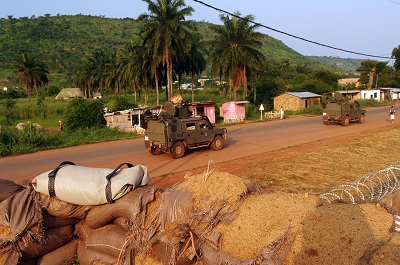
EUTM-RCA is a non-executive defence mission with the aim of contributing to the EU´s efforts in advising, teaching and training the Armed Forces of the Central African Republic. It aims to support the reform of the Armed Forces and strengthen their ability to contribute to the defence of their own territory and the protection of their own population.
Spain currently contributes to EUTMRCA with eight servicemen from the Spanish Army.
Linked to this mission was Spanish Air Force's 'Mamba' detachment, which had been operating in Libreville (Gabon) since March 2014 to ensure logistic support for the Spanish troops deployed in the Central African Republic. The detachment was shut down on March 24th, 2020.
2022
- November 21st. Transfer of Authority of the Spanish contingent. colonel Rivera Sánchez, Commander Mission, was relieved after six months of deployment by colonel Martínez.
- July 7th. colonel Enrique Javier Rivera Sánchez takes command of the Spanish contingent and takes over as new Chief of Staff of EUTM-RCA-XIV.
- February 3th. colonel Alberto Gude Menéndez takes command of the Spanish contingent and takes over as new Chief of Staff of EUTM-RCA-XIII.
2021
- September 11th. Colonel Fco. Javier Álvarez Roy takes command of the Spanish contingent and takes over as new Chief of Staff of EUTM-RCA.
- July 13th. Colonel José Manuel González Rodríguez takes command of the Spanish contingent and takes over as new Chief of Staff of EUTM-RCA.
- May 4th. Colonel Miguel Ángel Hernanz Moral, is appointted as new Chief of Staff of the mission (COS) and Chief of the Spanish contingent EUTM RCA-XI.
- April 19th. ESP CHOD visits EUTM-RCA HQ and also meets with minister for Defense of the Central African Republic.
2020
- November 23rd. The Spanish contigent deployed into EUTM-RCA took over; including the new Chief of Staff, Spanish Col. Valentín Olombrada Valverde.
- September 18th. Portuguese Brigadier General Paulo NEVES DE ABREU took over from Brigadier General Eric PELTIER (France) as the commander of the European Union Training Mission in the Central African Republic (EUTM-RCA).
- June 18th. EUTM-RCA's HQ has hosted the Chief of Staff HOTO ceremony between Spanish Colonels. Incoming Col. Fernando Bermejo Cabrera took over from Col. Alfonso Barea.
2019
- November 21st. Transfer of Authority of the Spanish contingent. Colonel Pedro Polo, Commander Mission, was relieved after six months of deployment by Colonel Alfonso Barea.
2018
- March 28th. A team from the 19th Spanish Legion Special Operations Battalion (BOEL in Spanish) evaluates training of the future Special Operations Company from the Central African Armed Forces (FACA in Spanish).
- January 11th. Mayor General García Blázquez ends its command as head of the mission.
2017
- July 24th. Mayor General, Fernando García Blázquez, takes over the command of the EUTM CAR (Central African Republic) mission.
- January. Training of the 2nd and 3rd Territorial Infantry Battalion (BIT in Spanish) Company No. 3.
2016
- July 16th. The EUTM CAR Operation begins. Training of the 1st Territorial Infantry Battalion (BIT) Company No. 3.
2015
- November 21st. Relevo del contingente español. El coronel Pedro Polo, jefe de Estado Mayor de la misión, ha sido relevado tras seis meses de despliegue por el coronel Alfonso Barea.
- April 22nd The Congress of Deputies authorises Spanish participation in the EUMAM CAR mission.
- March 15th. The EUFOR CAR mission comes to an end.
- January 19th. The European Union Council establishes a military advising mission for the CAR as part of the United Nations Multidimensional Integrated Stabilization Mission in the Central African Republic (MINUSCA).
- January 16th. The Head of State of the Central African Republic requests the EU to deploy an advisory mission, after conclusion of the EUFOR CAR, an operation launched by the European Union in February 2014.
EMAD PRESS RELEASES ON EUTM RCA
-
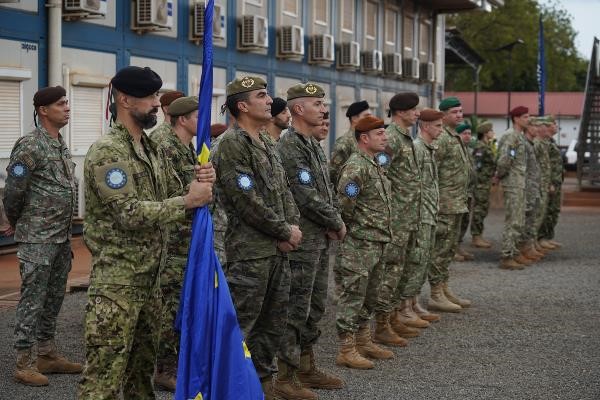
Spanish Military members face the beginning of the school year at the Central African Armed Forces Non-Commissioned Officers' School
Spanish Military members face the beginning of the school year at the Central African Armed Forces Non-Commissioned Officers' School
2024/11/13In Central African Republic
More information -
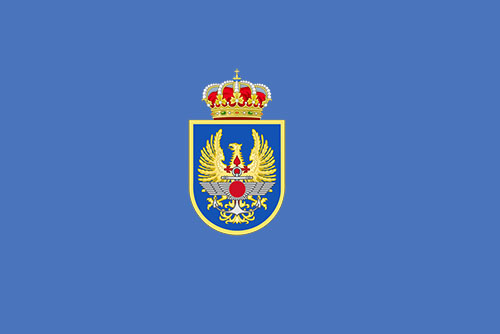 2023/01/10 More information
2023/01/10 More information -
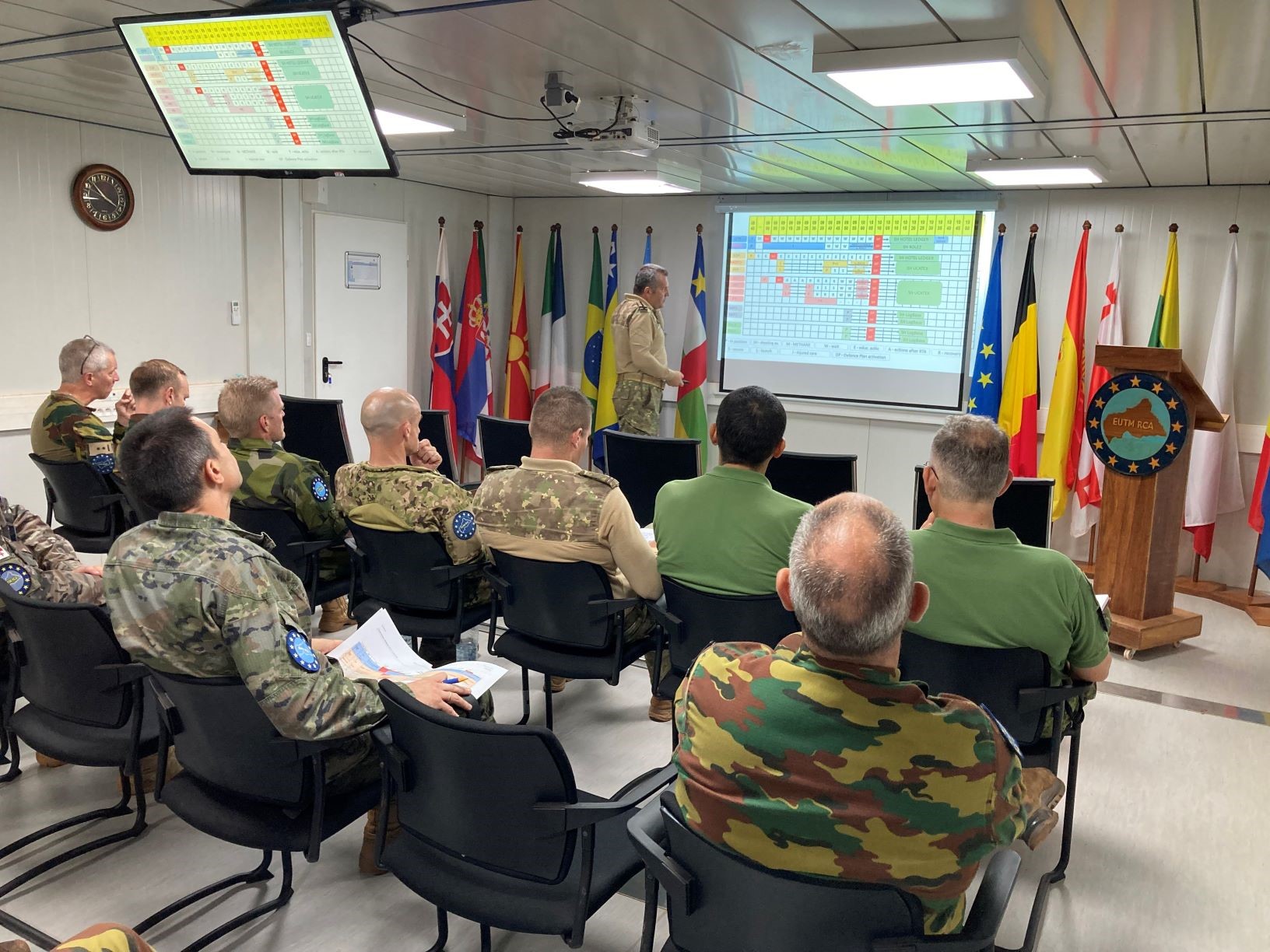
The current EUTM RCA contingent completes its Training Operational Cycle
The current EUTM RCA contingent completes its Training Operational Cycle
2022/06/14Bangui, Central African Republic
More information -
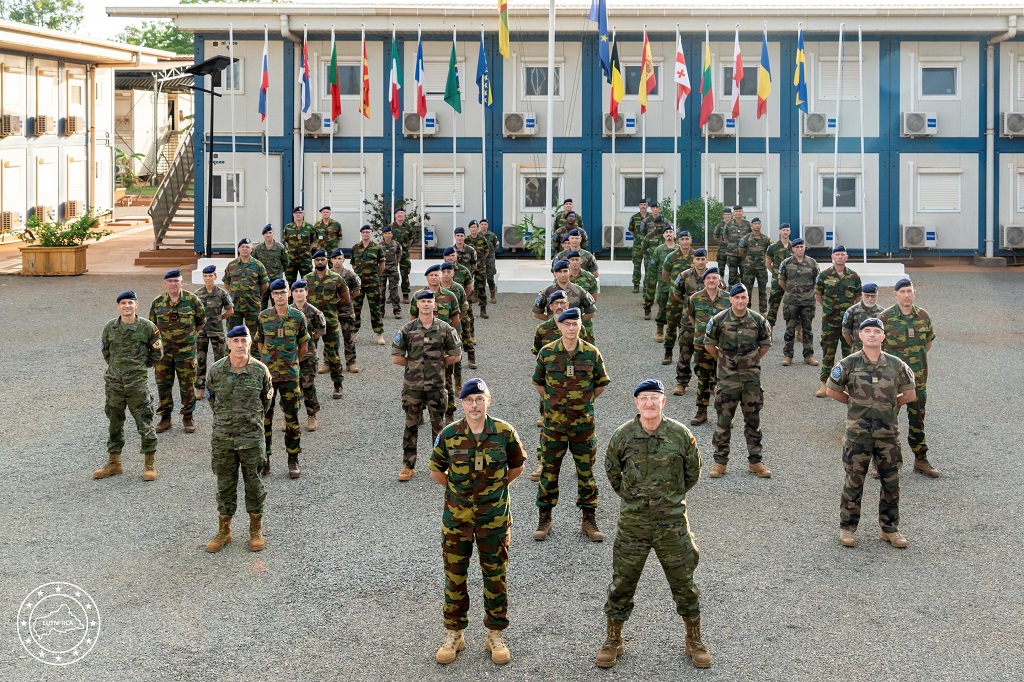
EUTM RCA welcomes general Colomer, Eurocorps Deputy Commander, to Moanas' Camp
EUTM RCA welcomes general Colomer, Eurocorps Deputy Commander, to Moanas' Camp
2022/05/10Bangui, Central African Republic
More information -
The Spanish EUTM RCA XIII contingent carries out a medical emergency response exercise
The Spanish EUTM RCA XIII contingent carries out a medical emergency response exercise
2022/03/28Bangui, Central African Republic
More information


